The Wedding
- Author: Stanisław Wyspiański
- : Maja Kleczewska
- : Grzegorz Niziołek
- : Małgorzata Szczęśniak
- : Konrad Parol
- : Kaya Kołodziejczyk
- : Cezary Duchnowski
- : Wojciech Puś
- : Marcin Chlanda
- : Emilia Sarga
- : Ludmiła Dziasek, Łukasz Groszkiewicz, Piotr Sędkowski
- : Bartłomiej Oskarbski
- : Bartosz Jelonek
- The Juliusz Słowacki Theatre in Krakow - The Grand Stage
- Premiere: 16.03.2024
Nearest dates
The secret of Stanisław Wyspiański's Wesele (The Wedding) lies primarily in the way it resonates with theatregoers because – as Jan Błoński once wittily stated – Polish audiences are never bored watching The Wedding. Almost everyone agreed with the portrayal of our nation contained in Wyspiański's drama: be it socialists, nationalists, democrats or conservatives. And yet The Wedding depicts a social and class conflict, which is ongoing and constantly renewed, impossible to resolve, antagonising the players in the field of politics in many different ways, fuelled by anger, rage, a sense of injustice and desire for revenge.
The drama's grand finale, heading in long cadences towards a state of lethargy, disarmament, and a straw-wrap dance, used to be interpreted as the bitter, shocking truth about our social impotence, apathy and anomie. Or is it perhaps the other way around? Might this perverse, triumphant and monumental scene where social energy is slaughtered, trigger a sense of relief, liberate us from the fear of gory violence, and provide a blissful sense of elevation and self-righteousness? Is the drama's pulsating threat of unleashing revolutionary elements stifled by the illusion of community and the symbolic violence that always accompanies it? Is Wyspianski's drama haunted by the spectres of the national subconscious, as we tend to believe, or rather by the cadavers of history with a far greater reach?
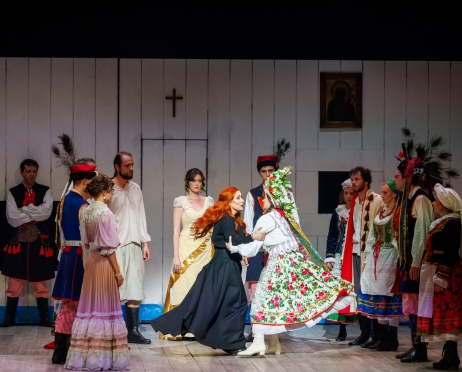
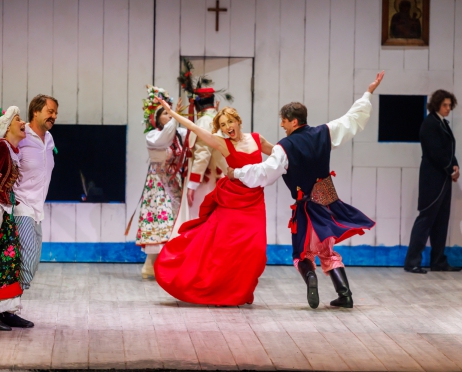
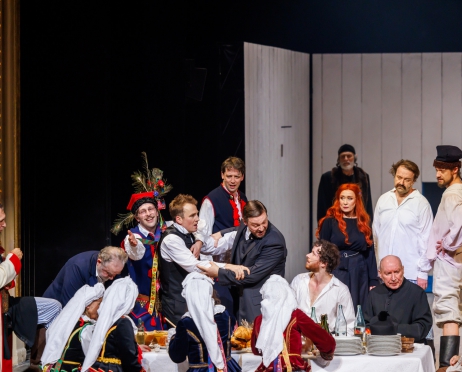
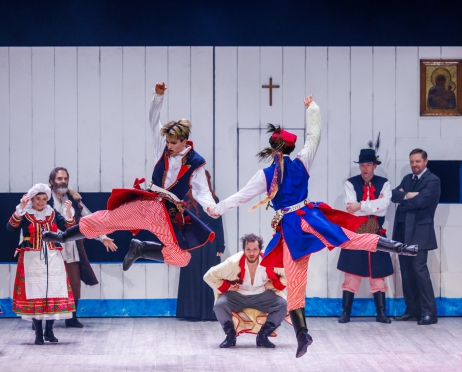
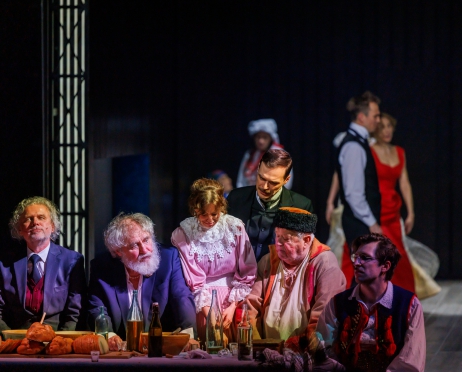
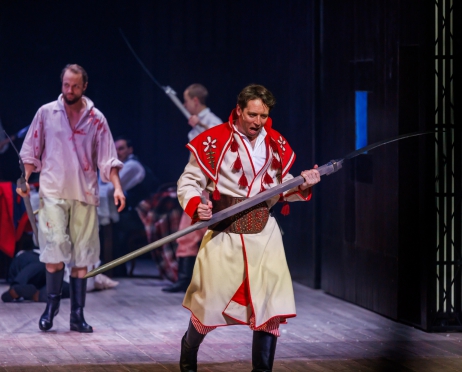
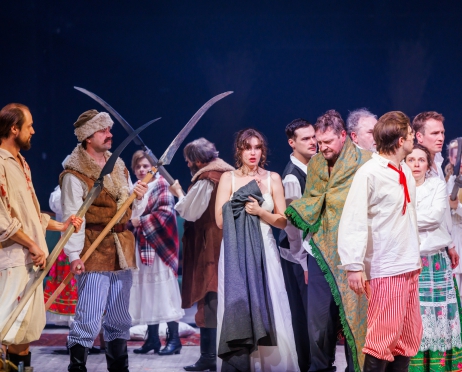
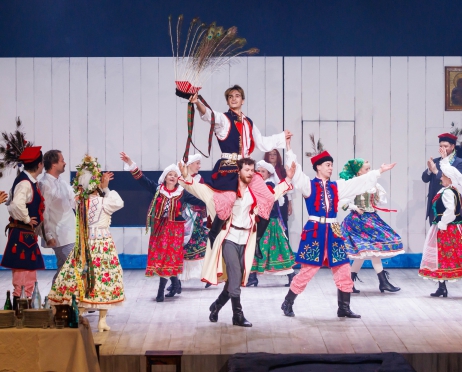
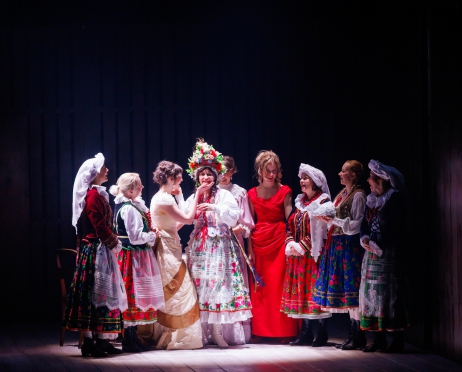
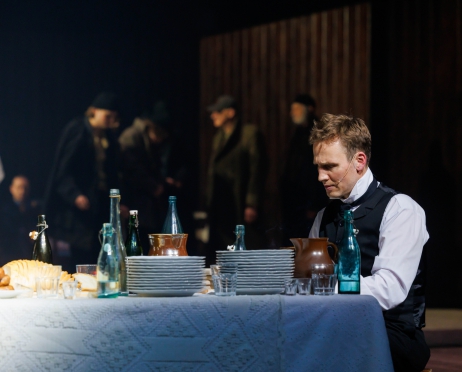
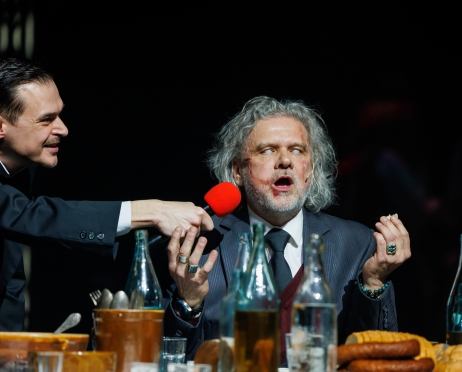
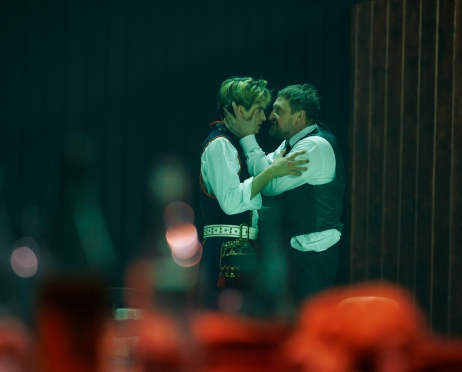
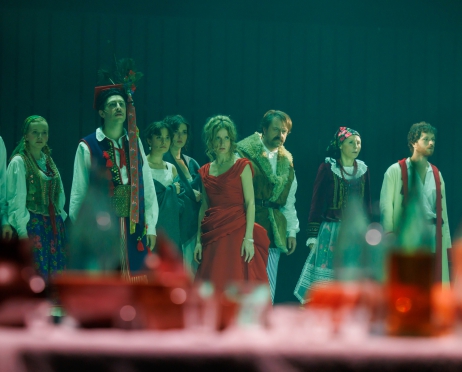
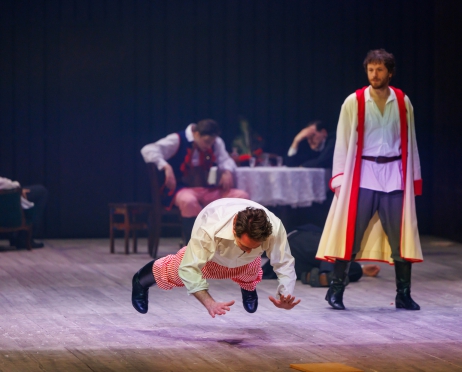
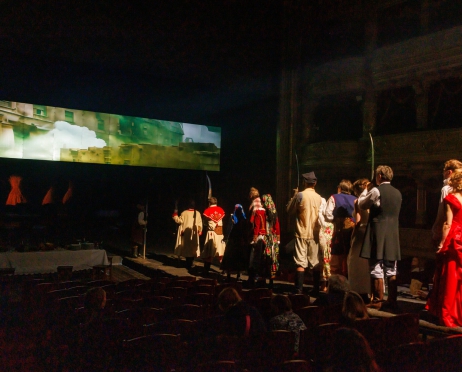
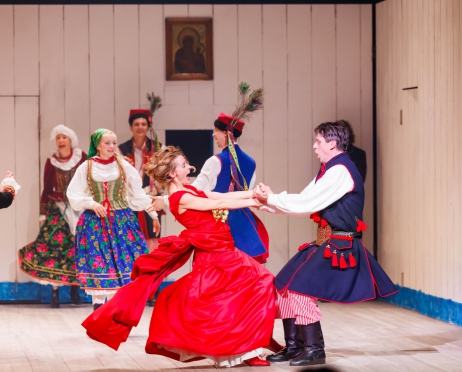
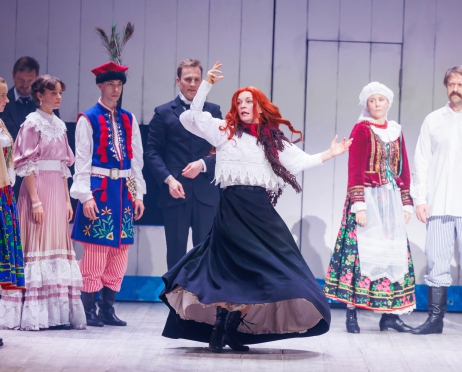
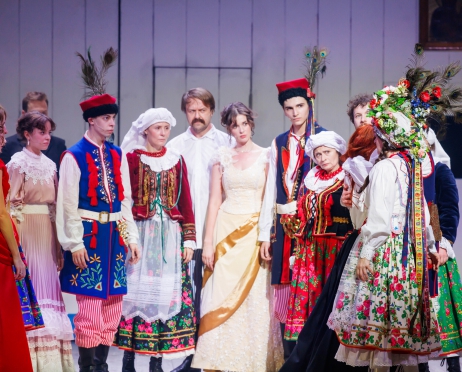
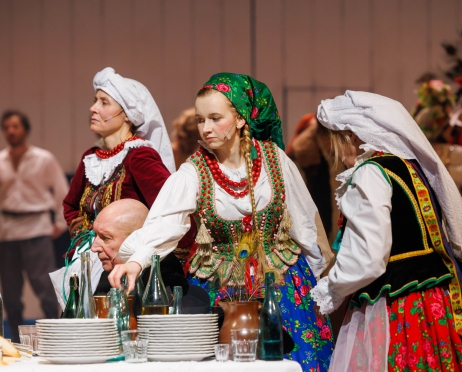
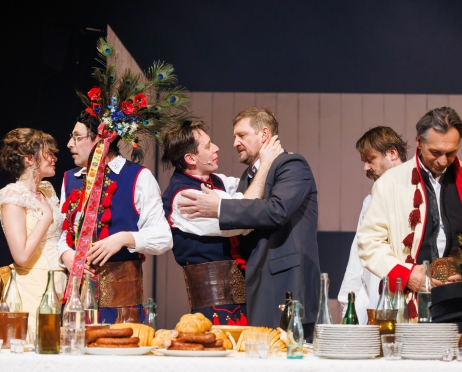
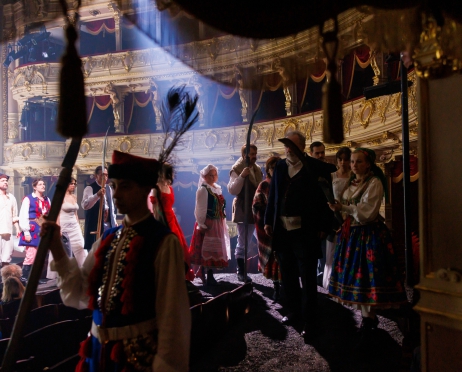
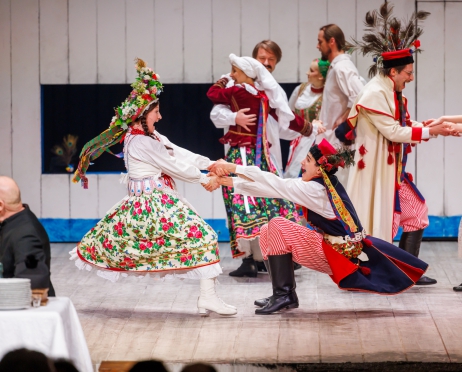

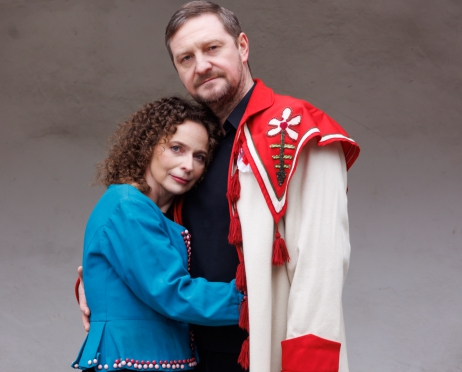


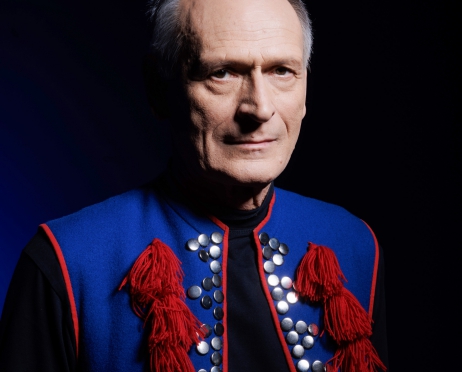
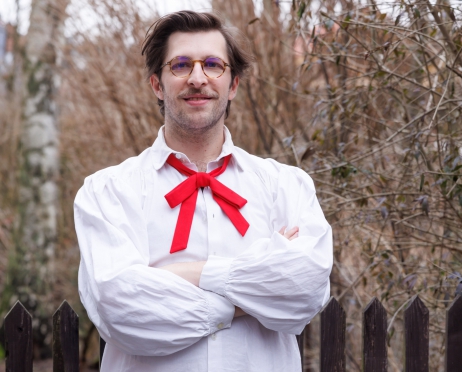

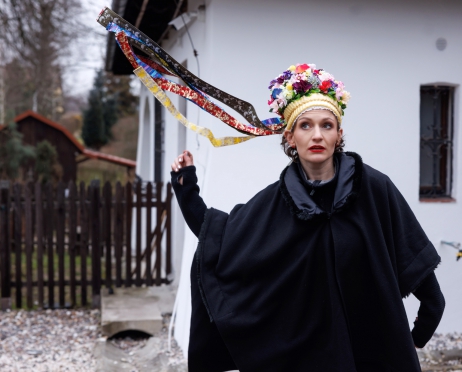
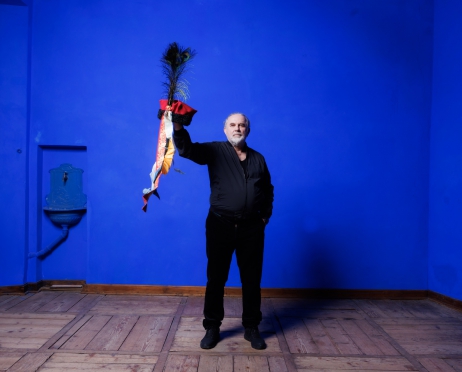
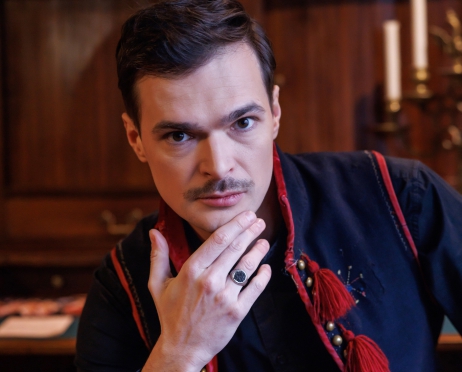
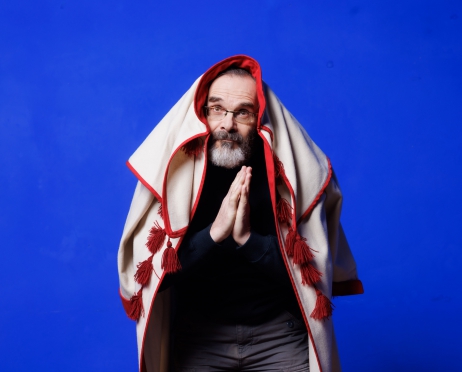
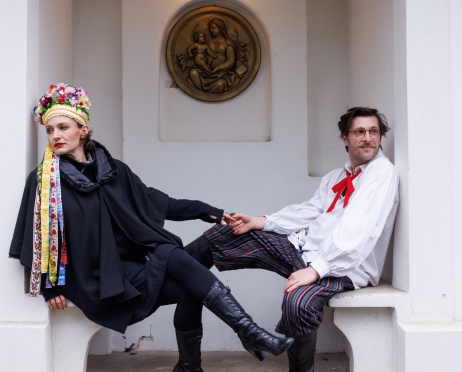


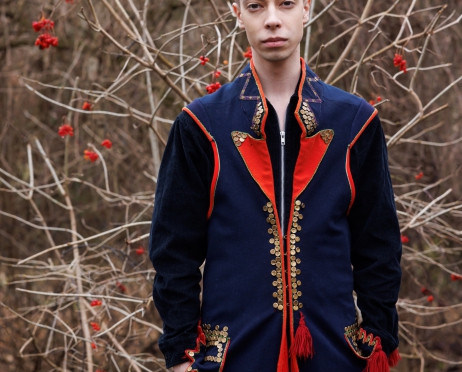
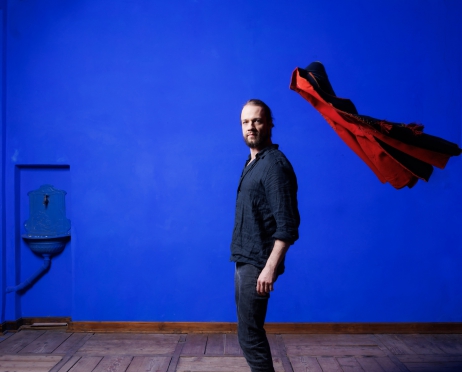
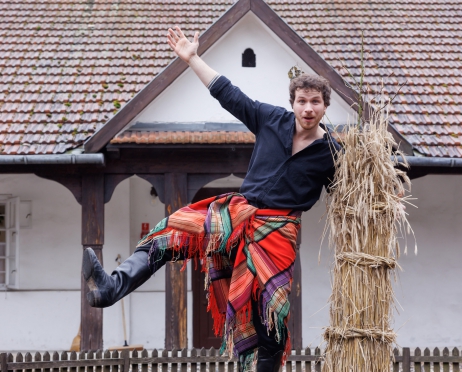
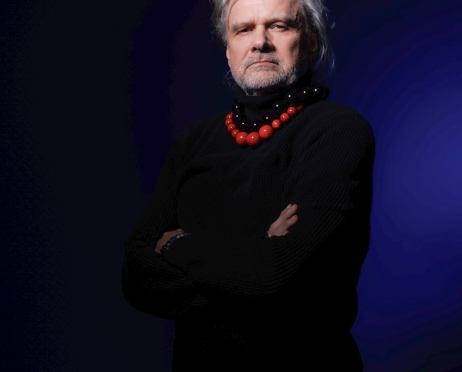


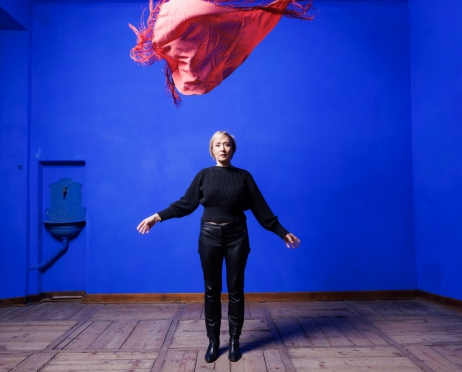

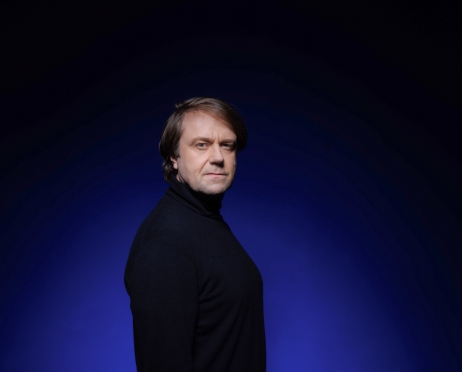
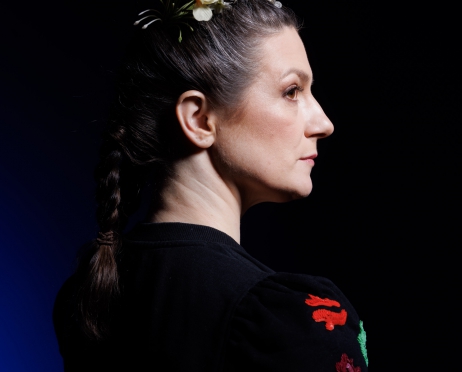


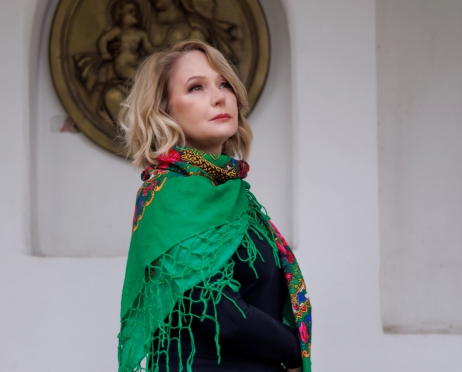





_1_original.jpg)



